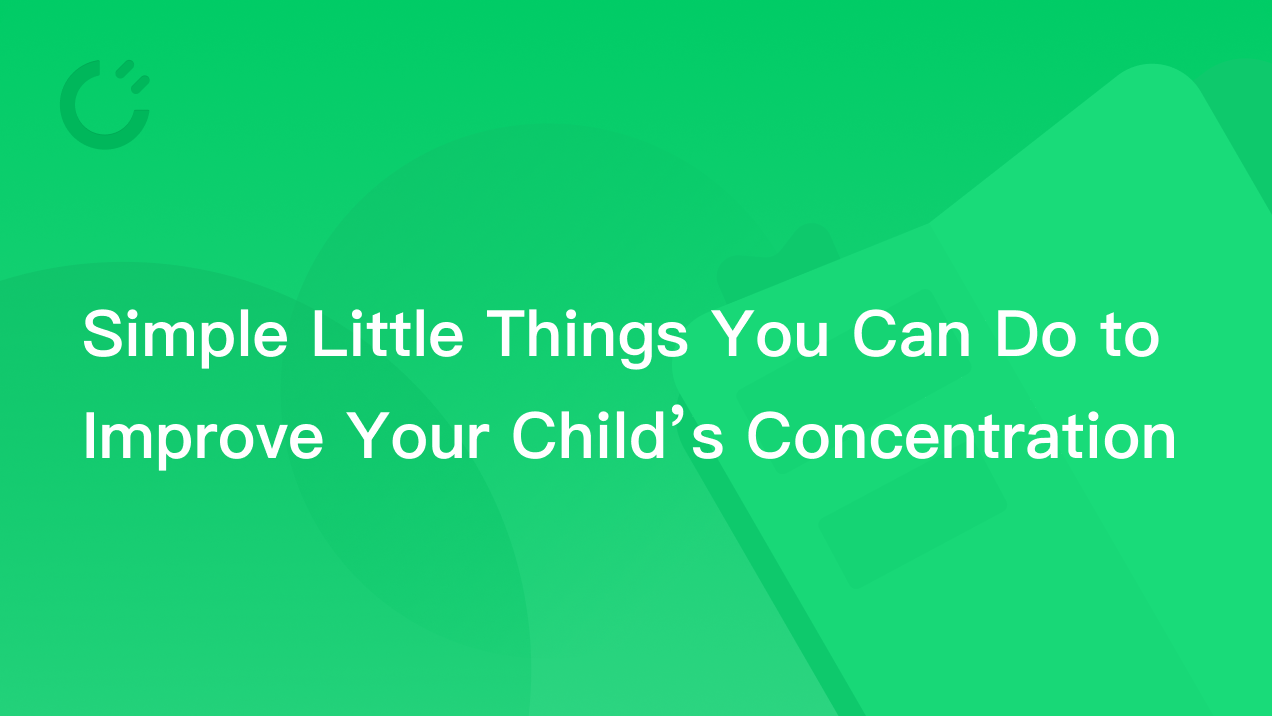Simple Little Things You Can Do to Improve Your Child’s Concentration
by Ahmed, Jul 04 2022

Does your child find it difficult to focus? Perhaps he isn’t able to sit still for too long, has difficulty finishing a task, makes careless mistakes, or just often drifts off. These are all signs of a short attention span.
Although having a short attention span is usually not a cause for concern because it’s often just a temporary phase, it can present a challenge when it’s present. If the capacity to concentrate is not developed at an early age, it could hinder a child’s learning ability and adversely affect him in other ways. In his best-seller, Emotional Intelligence, Daniel Goleman said: “Concentration is more important than IQ when it comes to learning in children.”
So, what can you do if your child has difficulty concentrating? First off, there is no cause for panic. Even though a child’s ability to concentrate is largely determined at birth, it can still be improved—to a certain extent—with the right responses and exercises. Even though there are no magic tricks, the right strategies can produce noticeable results.
- Divide Tasks into Smaller Segments
- Engage in Hands-On, Fun Activities
- Respect, Encourage, and Reward
Divide Tasks into Smaller Segments
Larger tasks generally require more concentration, so dividing larger tasks into smaller ones makes sense. You can apply this to your child’s homework, housework, or when he’s simply learning a new skill.
Before your child begins a task, think of how you can divide it into smaller segments before you give it to him. With smaller tasks, it’s much easier for your child to arrive at a sense of accomplishment, whereas with a larger task, it may be much harder for him to “get there.”
Engage in Hands-On, Fun Activities
Because learning to concentrate can often be a dull and tedious process for a child, it’s important to engage in—when possible—learning activities that are both fun and effective.
Games are a wonderful way to do this. Maze games can improve visual tracking. Color matching games can improve cognitive development. Board games can help your child keep track of whose turn it is, as well as the rules of the game. And puzzle games are great compared to simply drawing. With drawing, your child may suddenly lose interest and stop, whereas puzzle games provide a need for a sense of completion.
If your child has difficulty writing out an answer, have him act it out physically. In the end, whichever activity you choose, make sure that it’s age-appropriate.
Respect, Encourage, and Reward
Give your child choices; occasionally let him make some of the decisions. Remember, when you do offer your child a choice, respect his answer. No one wants to be offered a choice, only to have his choice denied because it was not the answer that was expected.
You may find that if you offer him the same choices over time, your child may choose different options—this is a good sign, it shows that he is growing.
When your child has found something that he enjoys doing, encourage him, and let him finish without interrupting. Then compliment and reward him when he does finish. But even if he doesn’t finish something, remember to still encourage him. In our culture, we often only praise the outcome, while we neglect to reward the process. We don’t focus on how much effort our child may have put into trying to do something.
Next time, consider saying something like, “You’re doing a wonderful job trying to hold those chopsticks,” or, “I'm proud of the great effort you put into that soccer match even though your team didn’t win.”
And finally, sometimes a little push is needed to help your child finish a task. Consider motivating your child with an incentive, such as allowing him some time to watch his favorite cartoon or play video games. Giving your child something to look forward to may give him the proper motivation needed to get the task done.
Finding the right strategies to deal with your child’s short attention span is the key to his improvement. Remember, the average attention span (according to certain studies) of a 3-year-old is 3 to 8 minutes, of a 5-year-old is 10 to 15 minutes, and of your average, a healthy adult can be up to 6 hours! So just remember: be patient, be patient, and be more patient.

 Successful
Successful